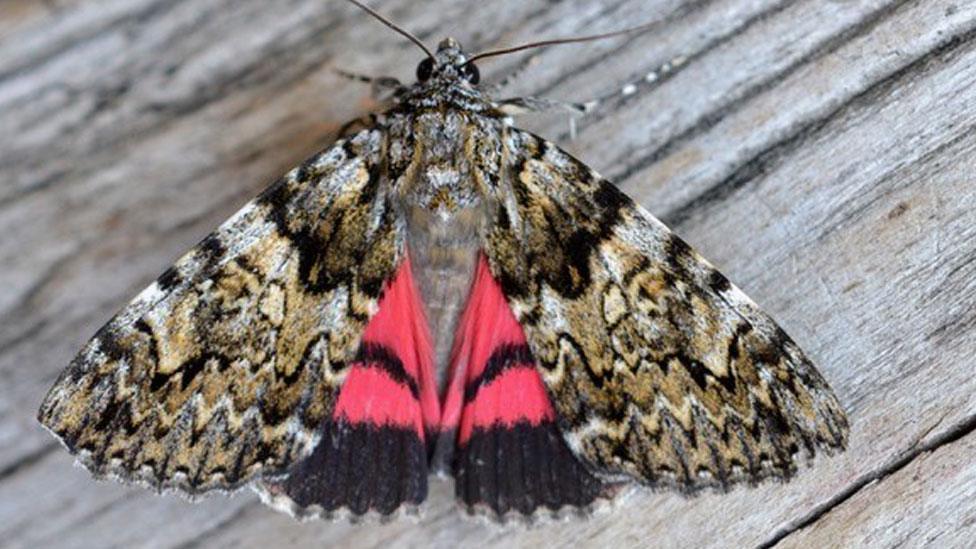Colchester Zoo releases final batch of Fisher's estuarine moths
- Published
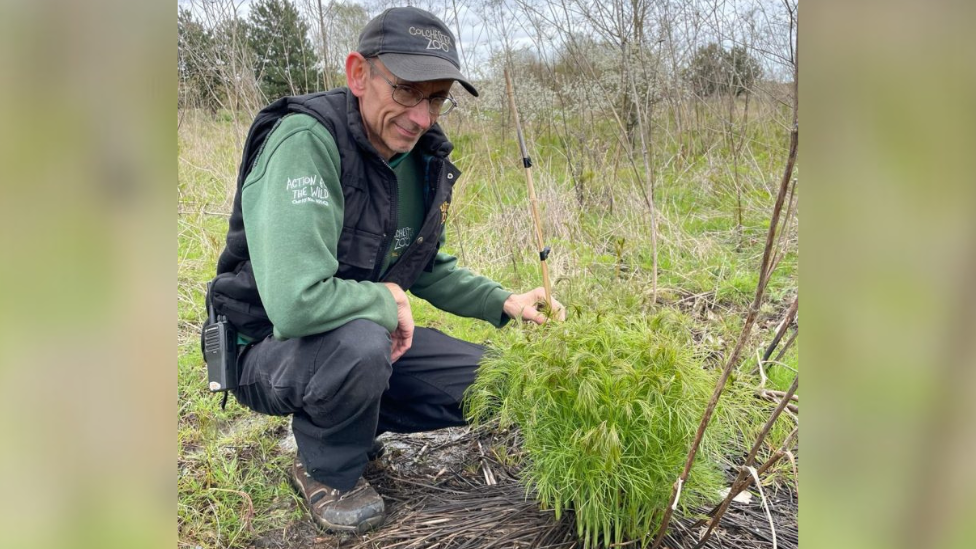
Glen Fairweather, of the zoo's reptile team, helped to release the moths in Clacton-on-Sea
A zoo has released its last batches of moth eggs after a breeding project to save a rare species.
Colchester Zoo said the 13 batches - each containing between 20 and 100 eggs - would help the Fisher's estuarine moth thrive in the wild.
They were released at habitat sites at Brook Country Park, Clacton-on-Sea.
"It was sad to release the last batches, but we are pleased to have contributed towards saving the species," the zoo said.
The Fisher's estuarine moth, external is only found in north-east Essex, primarily on the Walton-on-the-Naze backwaters, and also in Kent.
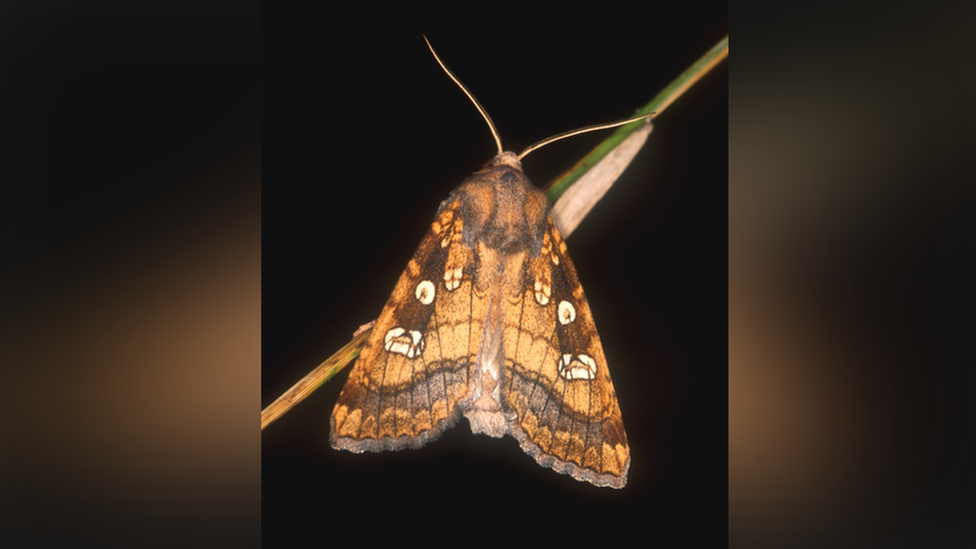
The rare Fisher's Estuarine moth is normally found in the Walton Backwaters in Essex
A project was launched in the early 2000s to help boost its numbers, with the zoo, Tendring District Council and Natural England all contributing.
Colchester Zoo said thanks to the success of the scheme, it would stop breeding moths "for the foreseeable future" and instead focus its efforts on managing hog's fennel - the plant that the moth feeds on during its caterpillar stage.
The larvae are dependent on the plant, which itself has a limited distribution and has been at risk from rising sea levels.
"[We have been] reintroducing from our breeding population at the zoo and releasing on a number of different sites over many years," the attraction added.
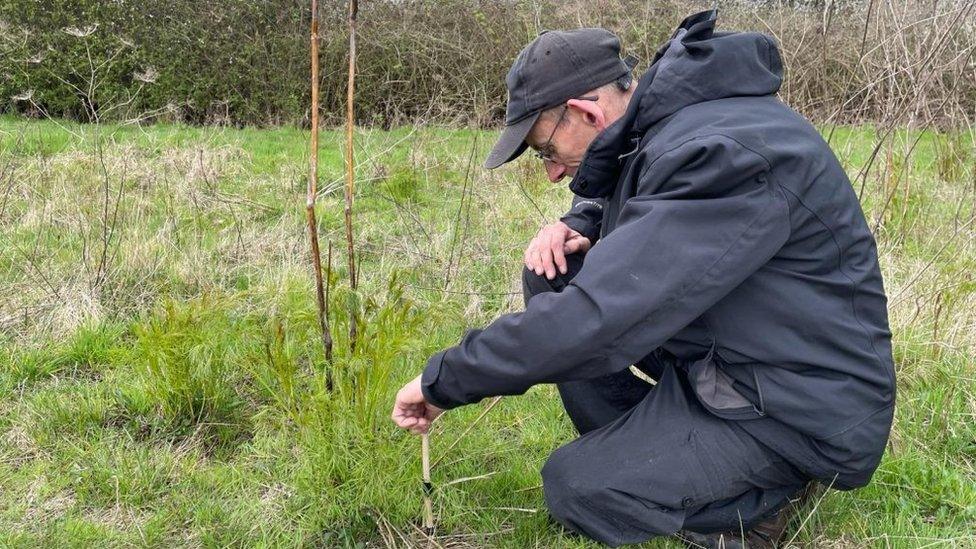
The 13 batches released contained between 20 and 100 eggs

Follow East of England news on Facebook, external, Instagram, external and X, external. Got a story? Email eastofenglandnews@bbc.co.uk, external or WhatsApp 0800 169 1830
Related topics
- Published11 April 2024
- Published5 December 2023
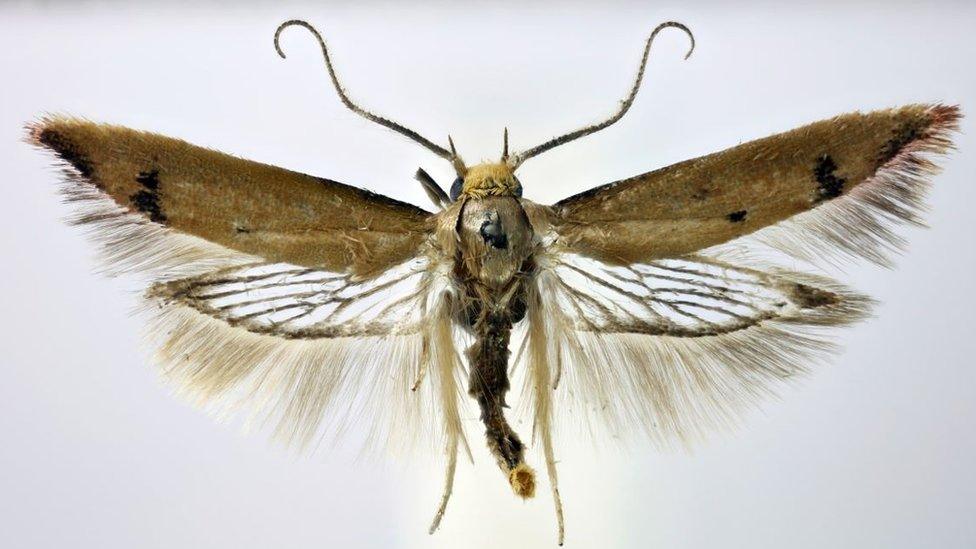
- Published30 July 2023
